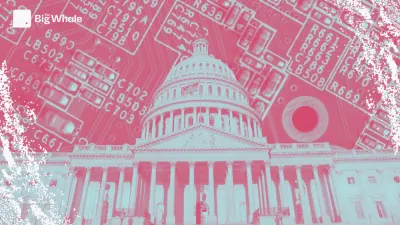Influenceurs crypto : vers un encadrement strict ?

Une proposition de loi transpartisane veut interdire aux influenceurs non enregistrés auprès de l’Autorité des marchés financiers (AMF) de faire la promotion de projets cryptos. Elle est soutenue par le gouvernement, selon nos informations.
La chute de FTX n’a pas seulement poussé les autorités françaises 🇫🇷 à durcir le ton avec les acteurs cryptos (cf. la récente loi qui accélère le calendrier sur les PSAN). Les influenceurs du secteur sont également visés. Une proposition de loi visant à “lutter contre les arnaques et les dérives des influenceurs sur les réseaux sociaux” sera examinée en séance à l’Assemblée nationale le 27 mars.
Fait suffisamment rare pour le souligner, celle-ci est le fruit du travail transpartisan de deux députés : Arthur Delaporte (PS) et Stéphane Vojetta (Renaissance). Selon nos informations, cette proposition a également reçu le soutien du gouvernement.
Cette analyse n'est pas un conseil en investissement. Elle a été rédigée sans prendre en compte votre situation personnelle et notamment votre situation financière, votre profil de risque et vos objectifs d’investissement.
Avant d’investir dans un produit, l’investisseur doit comprendre entièrement les risques et consulter ses propres conseillers juridiques, fiscaux, financiers et comptables.
Avant d’investir dans un produit, l’investisseur doit comprendre entièrement les risques et consulter ses propres conseillers juridiques, fiscaux, financiers et comptables.
Cet article est réservé aux abonnés insiders pro.
Les meilleurs news et analyses cryptos. Chaque semaine. 100% indépendant.
Tout ce qui compte dans la crypto.
Les meilleurs news et analyses cryptos. Chaque semaine. 100% indépendant.
Tokens dans cet article
No items found.
Projets dans cet article
No items found.

GENIUS Act et Clarity Act : Les États-Unis adoptent 2 textes historiques sur les cryptos
GENIUS Act et Clarity Act : Les États-Unis adoptent 2 textes historiques sur les cryptos

Stablecoins : les États-Unis adoptent le GENIUS Act, ce qu’il faut savoir
Stablecoins : les États-Unis adoptent le GENIUS Act, ce qu’il faut savoir

EXCLUSIF. Le Royaume-Uni sur le point d’ouvrir les ETN cryptos aux particuliers
EXCLUSIF. Le Royaume-Uni sur le point d’ouvrir les ETN cryptos aux particuliers

